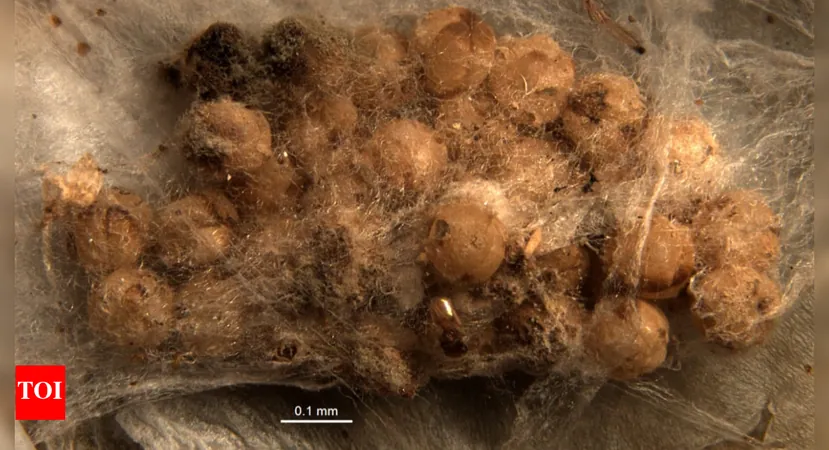
Revolutionary Leap in Biodiversity: Indian Scientists Decode Hidden Spider-Parasitoid Networks
2025-05-08
Author: Jia
Groundbreaking Discovery by ZSI Scientists
A team of innovative researchers from the Zoological Survey of India (ZSI) has made waves in biodiversity science by successfully decoding complex spider-parasitoid relationships directly from spider egg sacs using a cutting-edge technique known as DNA metabarcoding. This monumental research, highlighted in the prestigious journal *Scientific Reports*, shines a light on previously hidden ecological connections and the elusive world of parasitoids—tiny insects that play a crucial role in our ecosystem.
How DNA Metabarcoding is Transforming Ecology
Traditionally, examining parasitoid relationships has been a labor-intensive process, requiring meticulous rearing and microscopic analysis. However, the ZSI team, led by the astute K. Rajmohana alongside researchers Rupam Debnath, V. Sushama, and K. P. Dinesh, has changed the game with DNA metabarcoding. Their remarkable findings not only identified several elusive parasitoid genera, including Idris and Aphanogmus, but they also unveiled a tapestry of intricate ecological interactions within spider biology.
A New Era for Biodiversity Conservation
Dhriti Banerjee, the Director of ZSI, expressed pride in this achievement, stating, "Sustainability begins with understanding the intricate web of life. This groundbreaking research signifies India's leadership in biodiversity innovation." With over two million DNA reads analyzed, the study revealed 28 arthropod taxa, showcasing the complexity of food webs and previously invisible relationships.
Unveiling the Invisible
Researchers emphasized that this approach not only complements traditional taxonomy but enhances it. Rajmohana stated, "DNA metabarcoding doesn’t replace classical methods; it supercharges them!" As the team discovered new associations among organisms, including previously undetected connections, they shed light on nature’s complexity in an unprecedented way. V. Sushama remarked, "This study reveals the intricate networks shaping ecosystems, influenced by overlapping food chains."
Global Impact and Future Prospects
Looking ahead, K. P. Dinesh highlighted the necessity of establishing robust DNA barcode libraries for both parasitoid wasps and spiders. This endeavor will bolster ecological monitoring and conservation strategies. This noteworthy success is not only a tribute to Indian science but also represents a significant stride for the global scientific community, opening doors to innovative molecular tools in biodiversity conservation.
Conclusion: Nature’s Secrets Unlocked
As scientists continue to unveil the hidden connections within ecosystems, the research conducted by ZSI marks a pivotal moment in understanding the delicate balance of nature. This groundbreaking study truly makes the invisible visible, paving the way for future discoveries in ecological research and conservation.




 Brasil (PT)
Brasil (PT)
 Canada (EN)
Canada (EN)
 Chile (ES)
Chile (ES)
 Česko (CS)
Česko (CS)
 대한민국 (KO)
대한민국 (KO)
 España (ES)
España (ES)
 France (FR)
France (FR)
 Hong Kong (EN)
Hong Kong (EN)
 Italia (IT)
Italia (IT)
 日本 (JA)
日本 (JA)
 Magyarország (HU)
Magyarország (HU)
 Norge (NO)
Norge (NO)
 Polska (PL)
Polska (PL)
 Schweiz (DE)
Schweiz (DE)
 Singapore (EN)
Singapore (EN)
 Sverige (SV)
Sverige (SV)
 Suomi (FI)
Suomi (FI)
 Türkiye (TR)
Türkiye (TR)
 الإمارات العربية المتحدة (AR)
الإمارات العربية المتحدة (AR)